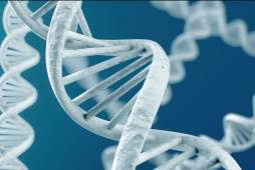FOR IMMEDIATE RELEASE
ACS News Service Weekly PressPac: June 05, 2013
Biology's drive toward engineering
“Engineering for the 21st Century: Synthetic Biology”
ACS Synthetic Biology
Biology is on the verge of getting its versions of the lever, wheel and axle, pulley and other basic machines that enable engineers to build almost any mechanical device, a new analysis has concluded. The viewpoint article on availability of this new toolkit — for engineering biological factories that can produce new biofuels, crops and chemicals, among others — appears in the journal ACS Synthetic Biology.
Kevin Munnelly, CEO of synthetic biology start-up Gen9, explains that people have been using basic genetic engineering for centuries to breed stronger oxen, faster horses and improved food crops. In recent years, however, there have been great leaps forward in the field of “synthetic biology.” Powered in part by advances in genome sequencing, chip-based processing and chemical innovations, that field is developing a solid engineering foundation of biological parts that can be assembled with the same precision and predictability of engineers constructing bridges or engines, and applied at the scale required for industrial manufacturing. Using synthetic biology, innovators across industries are building billion-dollar-plus markets for plants that churn out biofuels, create new textiles or yield crops that will thrive in any environment. They are also tackling data storage. For example, the entire contents of the Library of Congress could fit within a shot-glass of DNA.
In this viewpoint article, Munnelly describes the significant accomplishments that have shaped the synthetic biology landscape, as well as possible future innovations. Synthetic biology is already building its basic toolkit, with a switch and an oscillator, for instance, and scientists have stored 70 billion copies of a book in genetic material the size of a garden pea. On the horizon are drop-in genes, protein signaling pathways and other interchangeable parts for the emerging industrial biotechnology toolkit.
![]()
Contact
Science Inquiries: Michael Woods, Editor, 202-872-6293
General Inquiries: Michael Bernstein, 202-872-6042

into place to enable scientists to assemble
biological parts with the same precision and
predictability of engineers constructing bridges
or engines.

